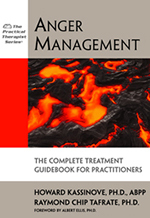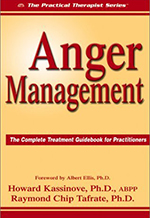Aggression is not the same as anger, though people readily confuse the two. A person can be very aggressive and mug someone in the street, but they needn’t be angry with the victim to perform this callous act. It is far more likely the motivation behind this behavior is the desire to steal valuables from the victim. Conversely, one can be angry with someone and not behave aggressively towards them.
Aggression is often defined as any behavior directed toward another individual that is carried out with the intent to cause harm (e.g., Rohlf, Holl, Kirsch, Krahé & Elsner, 2018). Perhaps someone is doing or saying something you don’t like, so you retaliate (e.g., threatening them with violence) in a bid to stop them from doing or saying it. That is aggression. Anger, on the other hand, is the state of emotional and physiological arousal. It has been described as a feeling that involves a strong, uncomfortable, and emotional response to a perceived provocation.
Anger may have physical effects. It may increase our heart rate, blood pressure, and levels of the hormones adrenaline and noradrenaline. Anger is thought to trigger part of the fight or flight brain response. The external expression of anger can be found in facial expressions, body language, physiological responses, and at times in acts of aggression. Psychologists view anger as a primary emotion experienced by humans, and as something that is necessary for survival. Anger can mobilize psychological resources to enable us to take action to help ourselves, but on the less positive side, uncontrolled anger and acts of aggression can negatively affect personal or social well-being.
Course excerpt from:
 Managing Anger & Aggressive Behavior is a 3-hour online continuing education (CE) course that provides strategies for dealing with anger and aggression in clinical practice.
Managing Anger & Aggressive Behavior is a 3-hour online continuing education (CE) course that provides strategies for dealing with anger and aggression in clinical practice.
Healthcare professionals in every specialty have had experiences with anger and aggression, sometimes finding themselves the target of their clients’ anger. We are human, and all of us are subject to the full range of human emotions, even as therapists within the context of professional encounters with our clients. While anger is perfectly normal and almost universally experienced and expressed by individuals, it can become highly problematic when it is excessive in frequency and duration and is disproportionate to the event or person who triggered it.
The intent of this course is to address four interrelated topics: (1) understanding anger, (2) managing one’s own anger, (3) managing aggressive behavior from others, and (4) teaching clients to manage problematic anger. We will explore the different ways in which people can express outrage, including the commonly encountered forms of aggression (passive aggression, covert aggression, overt aggression, and outright hostility), and provide strategies for dealing with aggressors. As a foundation, we will also discuss coping strategies for managing our own anger and frustration as we go about our daily lives. Course #31-16 | 2019 | 53 pages | 20 posttest questions
Click here to learn more and enroll.
- CE Credit: 3 Hours
- Target Audience: Psychologists | Counselors Social Workers | Occupational Therapists (OTs) | Marriage & Family Therapists (MFTs) | School Psychologists | Teachers
- Learning Level: Introductory
- Course Type: Online
Course Directions
This online course provides instant access to the course materials (PDF download) and CE test. After enrolling, click on My Account and scroll down to My Active Courses. From here you’ll see links to download/print the course materials and take the CE test (you can print the test to mark your answers on it while reading the course document).
Click here to learn more and enroll.
CE Information
Professional Development Resources is approved to sponsor continuing education by the American Psychological Association (APA); the National Board of Certified Counselors (NBCC ACEP #5590); the Association of Social Work Boards (ASWB Provider #1046, ACE Program); the American Occupational Therapy Association (AOTA Provider #3159); the American Speech-Language-Hearing Association (ASHA Provider #AAUM); the Commission on Dietetic Registration (CDR Provider #PR001); the Alabama State Board of Occupational Therapy; the Florida Boards of Social Work, Mental Health Counseling and Marriage and Family Therapy (#BAP346), Psychology & School Psychology (#50-1635), Dietetics & Nutrition (#50-1635), and Occupational Therapy Practice (#34); the Georgia State Board of Occupational Therapy; the New York State Education Department’s State Board for Mental Health Practitioners as an approved provider of continuing education for licensed mental health counselors (#MHC-0135); the Ohio Counselor, Social Worker & MFT Board (#RCST100501); the South Carolina Board of Professional Counselors & MFTs (#193); the Texas Board of Examiners of Marriage & Family Therapists (#114) and State Board of Social Worker Examiners (#5678); and is CE Broker compliant (all courses are reported within a few days of completion).









